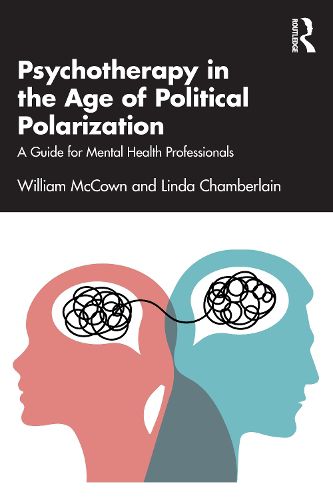Readings Newsletter
Become a Readings Member to make your shopping experience even easier.
Sign in or sign up for free!
You’re not far away from qualifying for FREE standard shipping within Australia
You’ve qualified for FREE standard shipping within Australia
The cart is loading…






Psychotherapy in the Age of Political Polarization is a response to the challenge so many mental health professionals face: How do we best assist our clients who are suffering from the political polarization that is pervasive in our culture? This book explores how highly politicized interactions can often affect psychotherapy and counseling, and ways to combat the division.
The liberal/conservative division that exists in psychotherapy is discussed, and ways of overcoming these differences to work on a common goal in a therapeutic setting is of central importance. Useful case examples and vignettes are included to aid and mend divisions caused when encountering politically and ideologically challenging clients. Furthermore, the book explores how we've become so divided, the relevance of politics in therapy, the interface of political polarization with psychological disorders, and finally skills to aid mental health professionals in ethical practice.
This is an essential read for mental health professionals and students, including psychotherapists, counselors, and psychologists hoping to bridge the gap and reduce the negative impact of political polarization.
$9.00 standard shipping within Australia
FREE standard shipping within Australia for orders over $100.00
Express & International shipping calculated at checkout
Psychotherapy in the Age of Political Polarization is a response to the challenge so many mental health professionals face: How do we best assist our clients who are suffering from the political polarization that is pervasive in our culture? This book explores how highly politicized interactions can often affect psychotherapy and counseling, and ways to combat the division.
The liberal/conservative division that exists in psychotherapy is discussed, and ways of overcoming these differences to work on a common goal in a therapeutic setting is of central importance. Useful case examples and vignettes are included to aid and mend divisions caused when encountering politically and ideologically challenging clients. Furthermore, the book explores how we've become so divided, the relevance of politics in therapy, the interface of political polarization with psychological disorders, and finally skills to aid mental health professionals in ethical practice.
This is an essential read for mental health professionals and students, including psychotherapists, counselors, and psychologists hoping to bridge the gap and reduce the negative impact of political polarization.